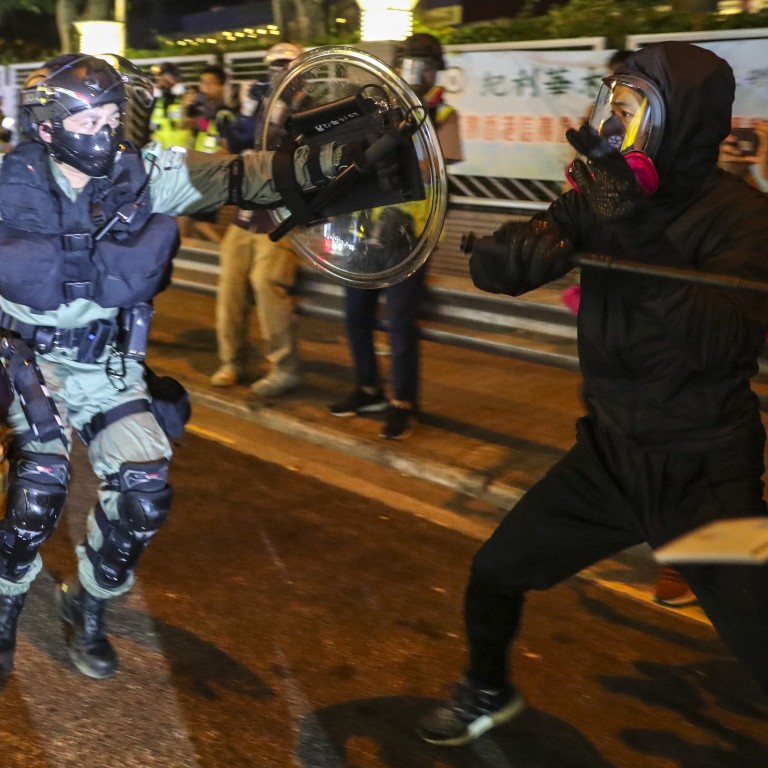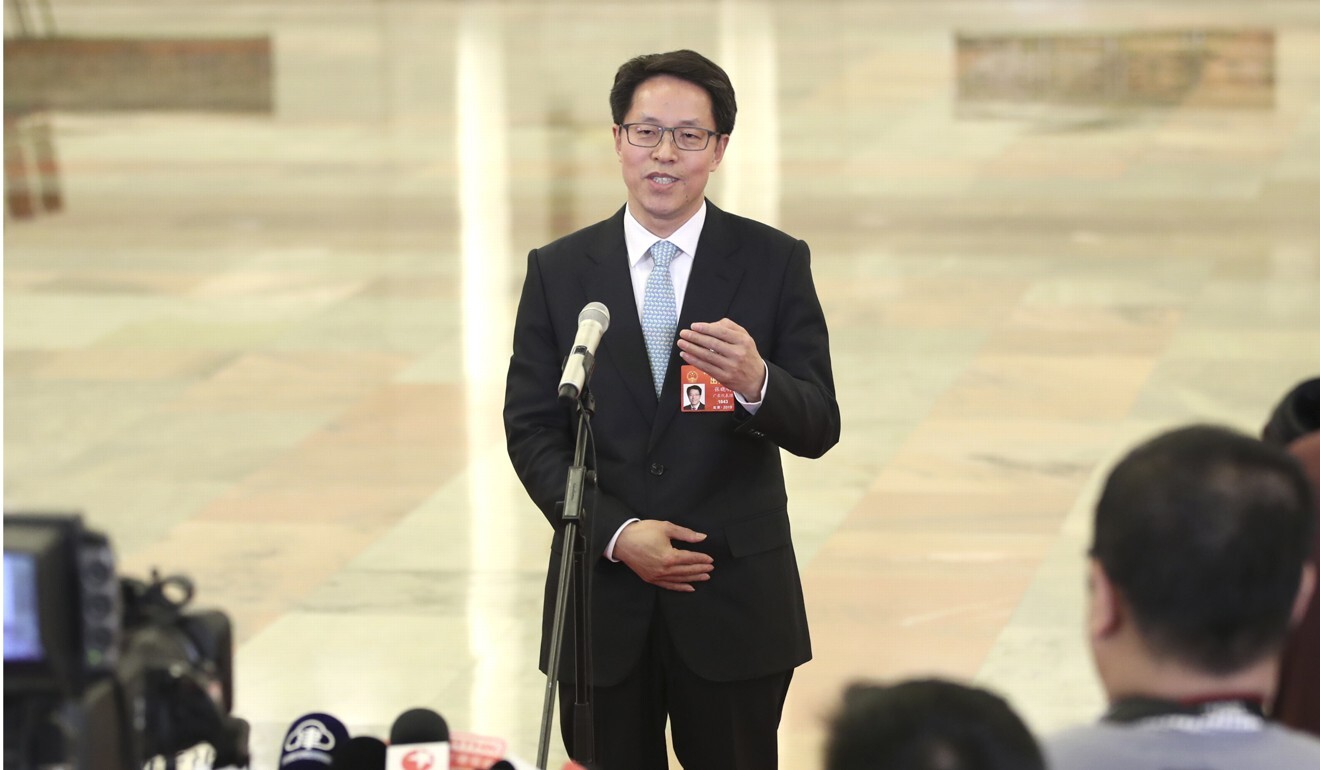
Need for national security law in Hong Kong becoming urgent, Beijing official says
- Steps must also be taken to prevent ‘foreign forces’ from interfering in city’s affairs, director of Chinese central government’s Hong Kong and Macau Affairs Office says
- Rise of independence forces linked to city’s failure to enact Article 23 of the Basic Law, he says
“Establishing a sound legal system and enforcement mechanism for safeguarding national security have become prominent issues and urgent tasks for the government of the Hong Kong special administrative region [SAR] and people from all walks of life,” he said.
The rise of independence forces in the city could be linked to its failure to enact Article 23 of the Basic Law, Zhang said, adding that the unrest, which has been going on for the past five months, had exposed the need for stronger measures to overcome the risk of the city being used by foreign forces to undermine China.
“Hong Kong has not yet completed the legislation of Article 23 of the Basic Law, nor has it established any agency to deal with national security matters,” he said, referring to the clause in Hong Kong’s mini-constitution that says it must enact its own national security law.
“This is one of the main reasons for the Hong Kong independence and local radical separatist forces becoming intensified,” he said.
Thousands gather to mourn death of Hong Kong student
Zhang’s article elaborated on Beijing’s pledge made at the plenum to safeguard national security in Hong Kong through legal means while upholding the principle of “one country, two systems”.
Both the central and SAR governments had the responsibility to improve the implementation of the Basic Law, he said. The National People’s Congress would interpret the Basic Law when needed, and the central authorities would review whether the laws and activities of the special administration region had violated the constitution, Basic Law or one country, two systems.
In his article Zhang said that foreign forces had been interfering in the affairs of Hong Kong and Macau, which is also classed as a special administrative region, for many years in the hope of splitting the cities away from mainland China.

The United States’ House of Representatives approved the act last month, paving the way for sanctions against individuals deemed responsible for actions seen to undermine Hong Kong’s autonomy.
“We must act in a tit-for-tat manner and establish a sound anti-intervention coordination mechanism with the SAR government,” he said. “We must not allow external forces to do whatever they want in Hong Kong and Macau.”
The “political turmoil and street violence” in Hong Kong had become protracted because of incitement from opposition and foreign forces, leading to unprecedented challenges to the implementation of one country, two systems, Zhang said.
“The storm has fully exposed some of the deep-seated contradictions and problems in Hong Kong’s political, economic and social aspects,” he said, adding that it had “highlighted the necessity and urgency” of improving the city’s system of governance.
Official statements released after the plenum suggested Beijing might seek to take a more active role in Hong Kong affairs, despite its pledge to adhere to the one country, two systems principle. Measures might include an increase in patriotic education in the city, enhancing the system for the appointment of its chief executive and principal officials, and strengthening law enforcement.
Zhang said the concept of “one country” should come before “two systems”, and that Hong Kong’s high degree of autonomy should not be used to oppose the central government.
Mainland students flee Hong Kong over fears they will be attacked
However, since its return to Chinese rule in 1997, none of Hong Kong’s four chief executives have opted to initiate national security legislation under Article 23.
Incumbent Carrie Lam Cheng Yuet-ngor said earlier that her government had a constitutional responsibility to enact the law and would seek to create a favourable environment to do so. But in her annual policy address last month she said the prospect was “lower” because of the current unrest.
Tian Feilong, executive director of the One Country Two Systems Legal Studies Centre at Beihang University, said Zhang’s article said, however, that the enactment of a national security law was only a matter of time.
Even though the general view was that enacting Article 23 would trigger more distrust towards the central government, it was still high on the agenda, he said.
And if the city government did not enact it, Beijing might add a national security law to the Basic Law annex, he said.
“Article 23 is an important indicator to assess the chief executive’s performance,” he said.


